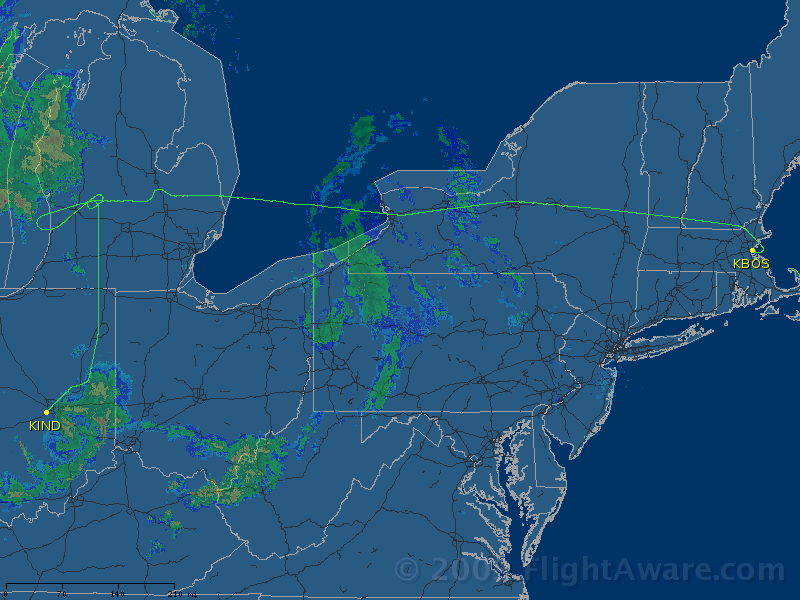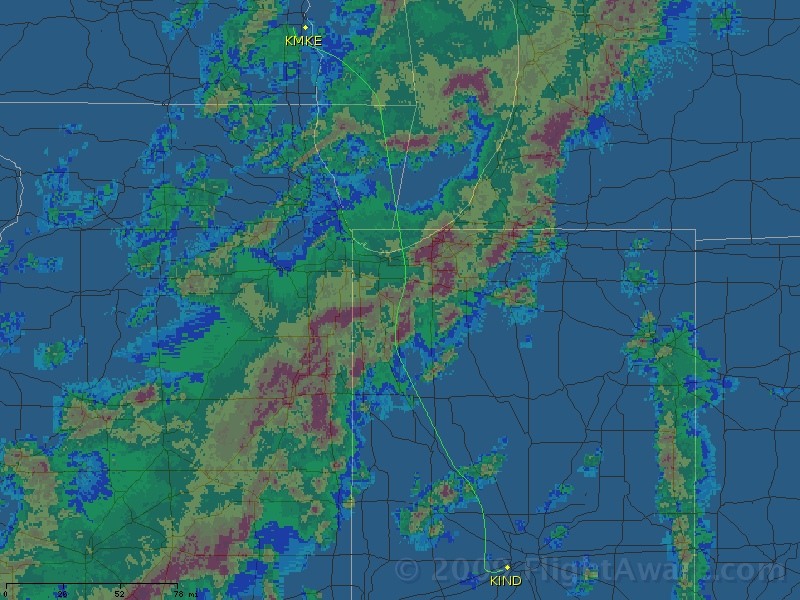
This was our third leg for the day. We began in Omaha around 2 PM, flew from Omaha to Milwaukee, and then off to Boston. On the return from Boston to Milwaukee, we ended up holding over Grand Rapids for 30 minutes before we made the decision to divert to Indianapolis for more fuel. Holding over Michigan with fuel burning away and planes above and below you all doing the same, you start thinking about plan B. Chicago had been in and out of holding patterns for most of the day, and airports were already full of diversions. This meant a long wait for fuel and the potential for issues with the Passenger Bill of Rights. We had a full flight and several infants on board that could be heard through the bulletproof cockpit door. To make things even more challenging, our Auxiliary Power Unit (APU) was inoperative, which meant no air conditioning on the ground, and I was certain that if a dozen planes were waiting for fuel already, no one would be in a hurry to get us a ground air cart.
So, looking around at where to land while the engines are chugging at our fuel, dispatch and I decide Indianapolis is a good option and we have enough fuel to make it—if we leave “Right Now.” Then Milwaukee calls to say the airport should reopen soon. But if we wait and commit to it, there’s no plan B if it closes again. It has opened and closed twice since we’ve been within earshot, so the odds are pretty good that if it does open soon, it will close again before we get there.
Indianapolis it is. Should we fly fast and burn more gas, or fly slow and save some in case we need it for something else? There’s weather in Indiana as well. We decide to fly slow. “Folks, I know I told you it would be 40 minutes until we land, but it’s going to be an hour.”
Luckily for us, no one has landed in Indianapolis yet, and we’re first in line for fuel—but our crews have gone home for the night, and Airtran is there to help. “How do you turn the light on in your baggage bin? Where does the air cart connect to the airplane? How many people does this plane seat?”
And I’m arranging for fuel and paperwork to release us to Milwaukee amid the crying baby and people who have connections. There’s a canceled flight next door, so can we put more people on your plane? Wow—it really is getting hot back there. What happened to the air cart?

Let’s spin an engine to cool things off. Oh, we can’t spin an engine. They are bringing more bags over now because of the canceled flight, and the cargo door is near the engine, so it can’t be spun until we load the bags.
“How do you turn that cargo door light on again?” they ask.
I tell the passengers the story, again. I ask them if they want to join me in the jetway; it is much cooler and it shouldn’t be too much longer. A man is off to see his daughter give birth. She is in the hospital waiting for him. I tell him my last name is Stork and draw up the obvious connections. He laughs. So do others. It buys me some time.
The puzzle is coming together now. We’ve got the fuel, the paperwork, the extra bags, and people. Let’s go to Milwaukee. The weather is still there, and there’s no good way to go around it… Time to pick our way through some storms.
The amazing thing about thunderstorms at night is that the moisture in the air carries the light from the lightning for miles after a strike. Even though we’re not in any thunderstorms, with each strike the cockpit lights up so brightly you’re blinded for a moment. “I’ve asked our flight attendants to remain seated for their safety.”
Air traffic controllers are talking to us, but we’ve got this cell we’re trying to fly around and we’ll have to get back to you. And dispatch sends a message, “Ha! I did such a great job routing you around the weather, and you decided to go right up the middle of it!”
No choice… the line has some breaks in it. Aside from a great light show and a few sizable bumps, we make it to Milwaukee to drop off a few, pick up a few, and head to Minneapolis for the night.
What makes or breaks a night like this is the crew you’re assigned to. As the captain, I have to be able to trust my team to do their jobs and allow me to delegate where need be. The great crews are the ones who know what needs to be done without hesitation and do so with a positive attitude. My crew easily handled all of our issues, and even though we were tired and hungry, they did so without hesitation and with a smile. This kept our passengers happy but, more importantly, me happy!
Great post, mate. Really interesting for a wannabe pilot like me to hear what happens when things don’t go so smooth!